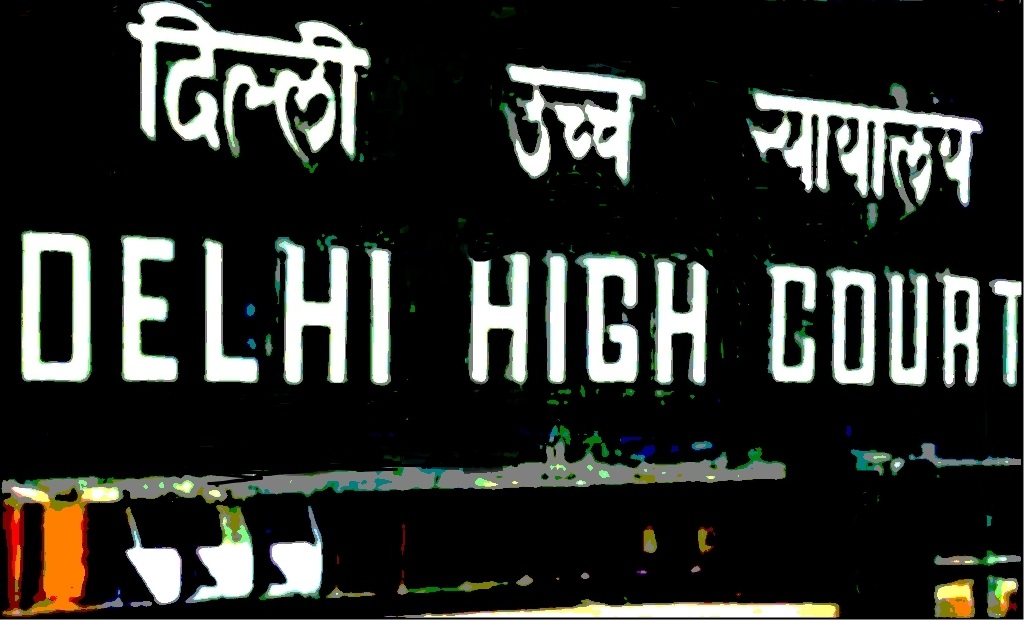Delhi HC directs registration of PIL as suo moto revision petition after finding infirmity in ASJ’s decision of acquitting 2 accused in child pornography case
Acting Chief Justice Manmohan & Justice Manmeet Pritam Singh Arora [09-05-2024]

Read Order: TULIR CHARITABLE TRUST v. UNION OF INDIA & ORS [DEL HC- W.P.(CRL) 1196/2024]
LE Correspondent
New Delhi, May 15, 2024: While finding manifest illegalities in the order of the ASJ acquitting 2 accused persons involved in circulating, storing and viewing Child Sexual Abuse Material (CSAM) through social media groups, the Delhi High Court has directed that the Public Interest Litigation filed by a charitable trust be registered as a suo moto revision petition and listed before a Single-Judge Bench on May 21, 2024.
The public interest litigation had been filed challenging the order of the Additional Sessions Judge (Special Court-POCSO) (ASJ-SC) whereby the respondent nos.3 and 4 were discharged of offences under Section 15(2) of the Protection of Children from Sexual Offences Act, 2012 ( POCSO Act). The petitioner also sought guidelines while hearing cases involving Child Sexual Abuse Material (CSAM) of unidentified child/children online or offline.
Respondent nos. 3 and 4 were arrayed as accused in FIR filed by the CBI on the basis of information that respondent nos.3 and 4 along with other unknown persons were involved in circulating, storing and viewing CASM through social media groups. Upon investigation, 34 videos from the mobile phone and 14 videos from the hard-disk were recovered from respondent no.3 and 25 videos were recovered from the phones of respondent no.4, wherein children were depicted in a sexually explicit manner.
Consequently, charge-sheet under Section 67B of Information Technology Act, 2000, Section 15 (2) of POCSO Act, 2012 and Section 120B of Indian Penal Code, 1860 (IPC) was filed also praying for liberty to carry out further investigation. Vide the impugned order, the ASJ-SC held that the provision of Section 15(2) of the POCSO Act couldn’t be invoked against respondent nos.3 and 4 in absence of criteria of determining the age of the children in the pornographic videos/photos.
It was the case of the petitioner that the ASJ-SC had erroneously given benefit of Section 34 of the POCSO Act to the accused persons. It was contended that Section 94(2)(i) of JJ Act is not applicable to victims who are unidentified and untraceable.
During the hearing, the Court had asked the Counsel for the CBI as to whether an appeal or revision has been filed against the order on charge dated September 1, 2023. The Counsel for CBI stated that the said order was not challenged by the CBI before any Court and they didn’t intend to challenge the same, as trial is proceeding ahead under Sections 67B of the IT Act and 120B IPC.
“It is settled law that PIL in criminal matters is normally not to be entertained”, the Division Bench of Acting Chief Justice Manmohan & Justice Manmeet Pritam Singh Arora said while noting that the petitioner is not a witness or complainant in the FIR before the ASJ-SC. The petitioner is stated to be a charitable trust engaged in combating child sexual abuse. “The petitioner as such is a stranger to the criminal proceedings pending against respondent nos. 3 and 4”, it added.
It was further observed that the prayer to frame guidelines for benefit of POCSO Special Courts by conducting cases involving CSAM of unidentified child/children is not called for in the present case as there are sufficient legal provisions to deal with it.
However, the Bench opined that the findings rendered by the ASJ prima facie suffer from manifest illegalities and have caused miscarriage of justice. While interpreting Section 15(2) of the POCSO Act, the ASJSC had failed to consider the definition of child pornography provided under Section 2(da) of the POCSO Act which states that any sexually explicit material involving a child or appear to depict a child would fall under the definition of child pornography. This suggests that only a prima facie inference of involvement of a child is sufficient for any sexually explicit material to be considered as child pornography.
CBI had relied upon statements of two doctors who had seen the videos recovered from respondents. The doctors had opined that some of the persons shown in the video/photos are children, i.e, below 18 years of age. As per the Bench, it was wholly unwarranted for the ASJ-SC to disregard the statement of medical witness. “The statements of the two doctors constitute a prima facie view at this stage and the same are sufficient material at the stage of framing of charge for an offence under Section 15(2) of the POCSO Act”, it said.
The reliance placed by the ASJ-SC on the judgment of the Supreme Court in P. Yuvaprakash vs. State Rep. By Inspector of Police was also held to be misplaced as in the present case, there was no sexual assault or elopement but recovery of sexually explicit material involving persons, who prima facie appeared to be children.
Reiterating that revisional jurisdiction of the High Court can be invoked suo moto in cases of manifest illegality, or in cases where the Courts have wrongly appreciated or refused to appreciate evidence, the High Court exercised its suo moto revisional jurisdiction under Section 397 read with Section 401 Cr.P.C. and passed the following directions:-
- The present public interest litigation be registered as a suo moto revision petition and listed according to the roster before a Single Judge on 21st May, 2024;
- Issue notice to the respondent nos.3 & 4 as to why order dated 1st September, 2023 be not set aside.
- The Union of India is deleted from the array of the parties.
Sign up for our weekly newsletter to stay up to date on our product, events featured blog, special offer and all of the exciting things that take place here at Legitquest.




Add a Comment